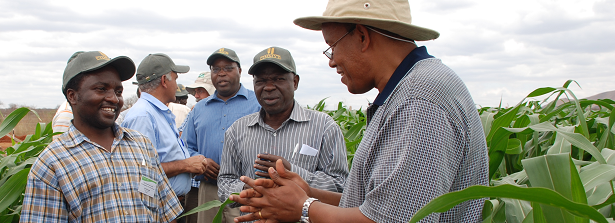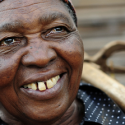Agribusiness-based Advisory Services (ABAS) project, update 01

In August 2017, agribusinesses were invited to join the collaborative learning trajectory “Agribusiness-based Advisory Services” by becoming part of the reference group. During the first phase, which covered the months of September and October 2017, a meeting has been organized to identify the main key questions resulting in an analytical framework. Within that framework relevant experience, information and potential cases have been identified that could help answer the study questions.
The Agribusiness-based Advisory Services (ABAS) project is led by a core group of partners consisting of the Royal Tropical Institute (KIT), DADTCO, Moyee Coffee and Agriterra, with the support of the Food & Business Knowledge Platform (F&BKP). The learning trajectory runs from September 2017 until May 2018 and the reference group thinks along in the design of the research, is consulted for their experience and gets informed directly on progress and outcomes. This is the first update of the ABAS project.
Study focus and analytical framework
During a one-day meeting early September 2017, partners in the learning trajectory identified, formulated and prioritized key questions they want to be answered within the limitations set by the project design.
This has been an important step in focusing the related study activities. The main questions selected are:
- How do companies organize the collection, processing and use of feedback information and data from farmers on their training and other extension services?
- How do companies realize synergy with other agencies in providing advisory services?
- How can longer term sustainability of advisory services be achieved, including mechanisms for cost recovery?
- What are key factors contributing to lower level of adoption by farmers and how can these be addressed?
- What is the development outcome at farmer level of the services provided?
Following this selection, the KIT research team developed an analytical framework to guide the further work. This basically breaks down the above five central questions into sets of sub-questions. And it adds two new sets of questions, one of which seeks to describe the basics of the advisory services provided while another and final one asks for main lessons learned. The framework is available from KIT upon request.
A wide search for cases
With the framework in mind the months of September and October have been used to identify relevant experience, information and potential cases. A longlist was drafted consisting of several cases from key partners in the ABAS project and an additional 50 interesting cases were identified from leads and suggestions by key partners, their networks, other organizations and through a general search online. Out of this longlist, the KIT research team is in the process of selecting a shortlist of cases to follow up in more detail within the time available. Key criteria for the final selection will be access to more detailed information and, particularly, the relevance of the research to the resource people.
Initial interesting findings and notes
During the first phase of the project, the following interesting and promising initiatives have been found:
- A summary of the IFPRI book on private extension, available here.
- A Service Delivery Models study by IDH, available here.
- The Olam Farmer Information System (OFIS) for managing farmer information back to a company, available here.
- A joint publication by KIT, FAO & AgriProFocus, on the business of agricultural business services, available here.
Next steps
The next steps in the ABAS project are being planned around two key parameters:
- A time frame that requires presentation of the final outputs by May 2018, and
- A resource base that hinges on the availability of one junior researcher.
While core partners will be guided in documenting and analyzing their case experiences, the researcher will dig into the short listed external cases. Document review and semi-structured interviews will be the main methods used in this.
For detailed study of one or two cases looking particularly at the effectivity and outcome of services provided from the perspective of the farmer-users the study works with the University of Amsterdam. A student has been mobilized for undertaking field work supported initially by the researcher. Country and cases to be part of this have to be chosen shortly.
The results of all these documentation and study activities will be shared and jointly analyzed in a learning workshop among the core partners in the second half of February 2018. A limited number of resource persons and experts are expected to join and contribute to the workshop and its analysis.
Following the main February 2018 workshop, all findings will be processed into various outputs and knowledge products. These will include a focused brief on all findings and lessons learned and a lunch meeting at the Ministry of Foreign Affairs.
The reference group of the ABAS learning trajectory is and remains open for interested organizations. If you would like to join, please send an email to Laurens van Veldhuizen, .






